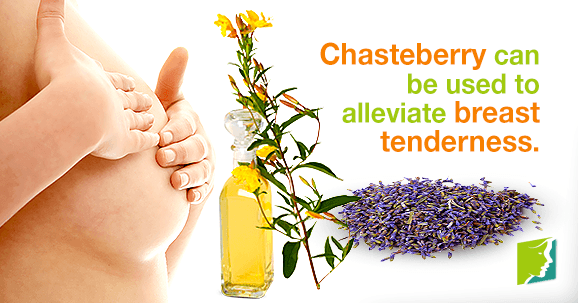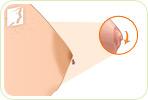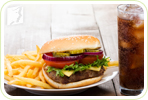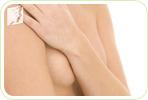Some women experience early menopause, which is when menopause begins prematurely, any time before the age of 40. The majority of them also feel breast tenderness at some point in the process. Whether it is new to you or you have been experiencing it for years as part of premenstrual syndrome (PMS), it's always important to understand what is going on with your body. The pain may be overwhelming at times, but when you are aware of the root cause, in addition to the remedies, you are more able to overcome it.
What Is Breast Tenderness?
Breast tenderness is pain in the breast area that is medically referred to as mammalgia, mastalgia, or mastodynia. The type that women most often feel during menopause is called cyclic breast pain. This is because it comes and goes in cycles that are often predictable, coinciding with the menstrual cycle.
Why Is it Occurring?
The primary cause of tenderness during early menopause is hormonal fluctuations. More specifically, a spike in estrogen levels can result in breast pain. Although during menopause estrogen levels are generally declining, there are moments where they suddenly increase, which can cause sharp pains that may linger.
Other possible causes of breast pain are lifestyle-related. Generally, the main contributors to breast tenderness are caffeine, alcohol, fatty foods, and salty foods. In addition, those with a high body mass index (BMI) usually have more severe pain. Breast tenderness can also be symptomatic of other conditions.
What Are Typical Symptoms?
Symptoms of breast tenderness vary between individuals but are always associated with some level of pain in the breast region. Pain can be concentrated around the nipples, throughout the whole breast tissue, and even in the underarms. Tenderness can occur in one or both breasts and linger for days.
The sensation can be a heavy soreness or a sharp quick pain that subsides. It can go from mild and easy to ignore to excruciating even upon the slightest impact or movement.
What Are the Treatments?
A healthy lifestyle can help treat early menopause symptoms. Try eating a healthier diet and including plenty of water and exercise in your daily routine.
Herbal remedies have also been shown effective in treating hormonal imbalance. Choices include:
Hormone-regulating supplements
These supplements help the endocrine system to produce more hormones. Their nutrients support the glands, helping them to secrete hormones at more balanced levels.
Other supplements
Evening primrose oil has been used to alleviate breast tenderness, but it is not effective for most women. On the other hand, chasteberry has been shown to reduce tenderness by lowering prolactin levels.
Should I Seek Medical Attention?
Breast tenderness during early menopause isn't generally a cause for concern, but there are certain things to watch out for. If you notice infection, nipple discharge, a new lump, or pain that does not subside, you should seek medical attention as soon as possible.
Breast tenderness is one of the more painful side effects of early menopause, but it is temporary and treatable. Try herbal remedies and lifestyle adjustments to improve your hormonal balance and overall health. It's important to be in touch with your body during this challenging time. For more information on breast pain and treatments, follow the links below.
Sources
- Carmichael, A.R. (2008). Can Vitex Agnus Castus be Used for the Treatment of Mastalgia? What is the Current Evidence? Evidence-Based Complementary and Alternative Medicine, 5(3), 247-250. doi: 10.1093/ecam/nem074
- Harvard Medical School. (2005). Breast pain isn't just a menstrual complaint. Retrieved February 16, 2016, from http://www.health.harvard.edu/press_releases/breast_pain
- National Institutes of Health. (2014). Breast pain. Retrieved February 16, 2016, from http://www.nlm.nih.gov/medlineplus/ency/article/003152.htm
- University of Maryland Medical Center. (2015). Evening primrose oil. Retrieved February 16, 2016, from https://umm.edu/health/medical/altmed/herb/evening-primrose-oil




